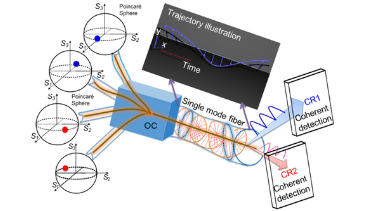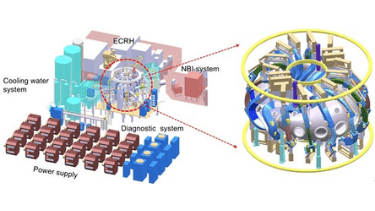Smart adhesives possess a wide range of applications owing to their reversibly and repeatedly switchable adhesion in transfer technology. Despite recent advances, it remains a technical and scientific challenge to achieve strategies for rapidly tunable adhesion in a non-contact manner.
Combining the disciplines of mechanics and applications, the group led by Professor Xiangyu Li from Southwest Jiaotong University has developed and designed a smart adhesive. The adhesive has the excellent performance of switching adhesion rapidly, reversibly, and reproducibly.

Working mechanism of the smart adhesive with magnetic tip
Prof. Li said the design strategy utilized the influence of initial cracks on the interfacial failure modes of the mushroom-shaped adhesives. One of the difficulties of this research was the preparation of such structures. The preparation method was developed over three years. Three Chinese invention patents were granted for this research.
The smart adhesive may be developed for application in two working modes, namely selective pickup mode and pick-and-place mode.
In the selective pickup mode, the external magnetic field is applied and the tip undergoes bending deformation. Changes in tip morphology allow for a reversible switch of the adhesion between “turn on” and “turn off”.
In the pick-and-place mode, the external magnetic field is applied when the target object needs to be released. Upward bending deformation of the micro-beam, a part of the tip, creates an initial crack at the edge of the adhesion interface. The propagation of edge crack modulates the adhesion from strong to weak and the target object is instantly released.

Applications to the micro-manipulating automated pick-and-place assembly and advanced laboratories
The proposed smart adhesive may be applied to the movement of electronic chips in the applications to the micro-manipulating automated pick-and-place assembly. In addition, it is also suitable for picking up and placing reagent bottles in advanced laboratories.
“This research achievement is the milestone we have achieved,” said Li. “A series of subsequent research results will be published soon. And, we plan to develop this smart adhesive for soft crawling robots which may be used for spacewalking.”










